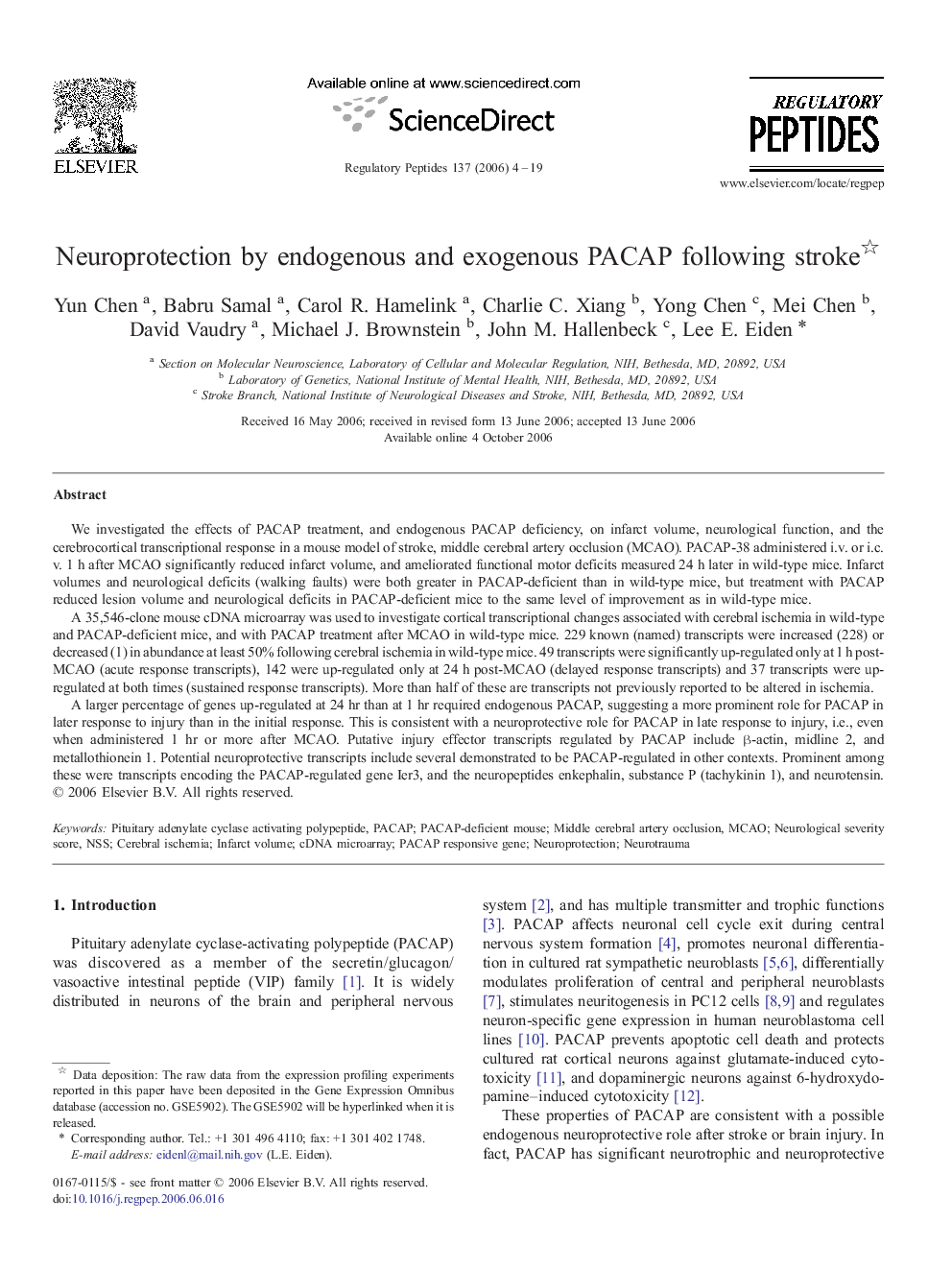| Article ID | Journal | Published Year | Pages | File Type |
|---|---|---|---|---|
| 2023547 | Regulatory Peptides | 2006 | 16 Pages |
We investigated the effects of PACAP treatment, and endogenous PACAP deficiency, on infarct volume, neurological function, and the cerebrocortical transcriptional response in a mouse model of stroke, middle cerebral artery occlusion (MCAO). PACAP‐38 administered i.v. or i.c.v. 1 h after MCAO significantly reduced infarct volume, and ameliorated functional motor deficits measured 24 h later in wild‐type mice. Infarct volumes and neurological deficits (walking faults) were both greater in PACAP‐deficient than in wild‐type mice, but treatment with PACAP reduced lesion volume and neurological deficits in PACAP‐deficient mice to the same level of improvement as in wild‐type mice.A 35,546‐clone mouse cDNA microarray was used to investigate cortical transcriptional changes associated with cerebral ischemia in wild‐type and PACAP‐deficient mice, and with PACAP treatment after MCAO in wild‐type mice. 229 known (named) transcripts were increased (228) or decreased (1) in abundance at least 50% following cerebral ischemia in wild‐type mice. 49 transcripts were significantly up‐regulated only at 1 h post‐MCAO (acute response transcripts), 142 were up‐regulated only at 24 h post‐MCAO (delayed response transcripts) and 37 transcripts were up‐regulated at both times (sustained response transcripts). More than half of these are transcripts not previously reported to be altered in ischemia.A larger percentage of genes up‐regulated at 24 hr than at 1 hr required endogenous PACAP, suggesting a more prominent role for PACAP in later response to injury than in the initial response. This is consistent with a neuroprotective role for PACAP in late response to injury, i.e., even when administered 1 hr or more after MCAO. Putative injury effector transcripts regulated by PACAP include β‐actin, midline 2, and metallothionein 1. Potential neuroprotective transcripts include several demonstrated to be PACAP‐regulated in other contexts. Prominent among these were transcripts encoding the PACAP‐regulated gene Ier3, and the neuropeptides enkephalin, substance P (tachykinin 1), and neurotensin.
